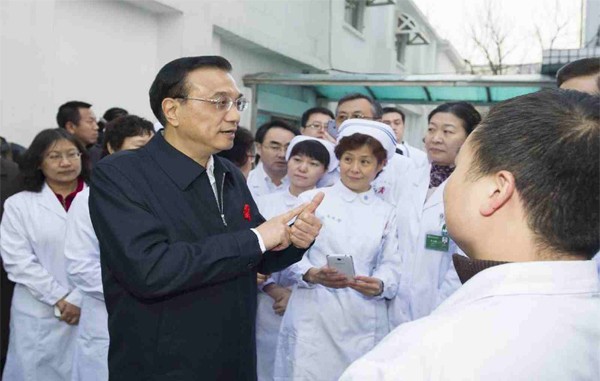Wang Guoqiang, vice director of the National Health and Family Planning Commission (NHFPC), said on Sunday that the number of people living with HIV/AIDS (PLWHA) in China had reached 497,000 as of end of October, with 154,000 confirmed to have already died as a result of the illness, Xinhua reported.
Wang, who made the revelation during an HIV/AIDS awareness promotion event to herald the World AIDS Day on Dec. 1, noted that there is already an overall low pandemic situation in the country, with exceptions to some regions.
The NHFPC official said that sexual transmission is the main infection channel, while mother-to-child and drug needle infection rates are in a lower level. He added that infections affecting young students, the middle-aged and the elderly have been particularly noticeable.
China currently has a total of 3,413 anti-virus treatment institutions set up in 31 provincial-level regions. It also maintains more than 9,000 voluntary HIV test stations nationwide.
The government provides free antiretroviral drugs to AIDS patients who are rural residents or people without insurance living in urban areas, free voluntary counseling and testing, free drugs to HIV-infected pregnant women to prevent mother-to-child transmission, HIV testing of newborn babies, and free schooling for AIDS orphans as well as care and economic assistance to the households of people living with HIV/AIDS.
Also on Sunday, in a separate venue, Premier Li Keqiang promised to work more on the prevention and treatment of AIDS. He also said that China is willing to cooperate with other countries in the fight against the spread of HIV.
The Chinese premier made the remarks during a visit at Beijing's YouAn Hospital, home to a center for HIV/AIDS treatment.
Li said that the government must assume the principal role in combating HIV and would continue to increase input on its prevention and treatment. In particular, it would set up HIV prevention funds, and perfect its tax reduction and exemption policies for public welfare social organizations. However, it must increasingly begin to rely more on the private sector.
Noting that China still boasts of low HIV rates as compared with other countries, Li said that efforts should be made to further strengthen HIV screening, focus on high-risk groups, and seek breakthroughs in the development of new-generation vaccines and drugs to counter the virus.
He also said that HIV prevention and treatment measures that have been proven to be technologically sound, economically affordable and socially benefiting should be promoted across the country. Efforts must particularly be made first to ensure zero mother-to-child infections, he added.
The government, Li promised, would also work to ensure that HIV-positive patients get access to equal employment and medical treatment as well as improve their quality of live.



























